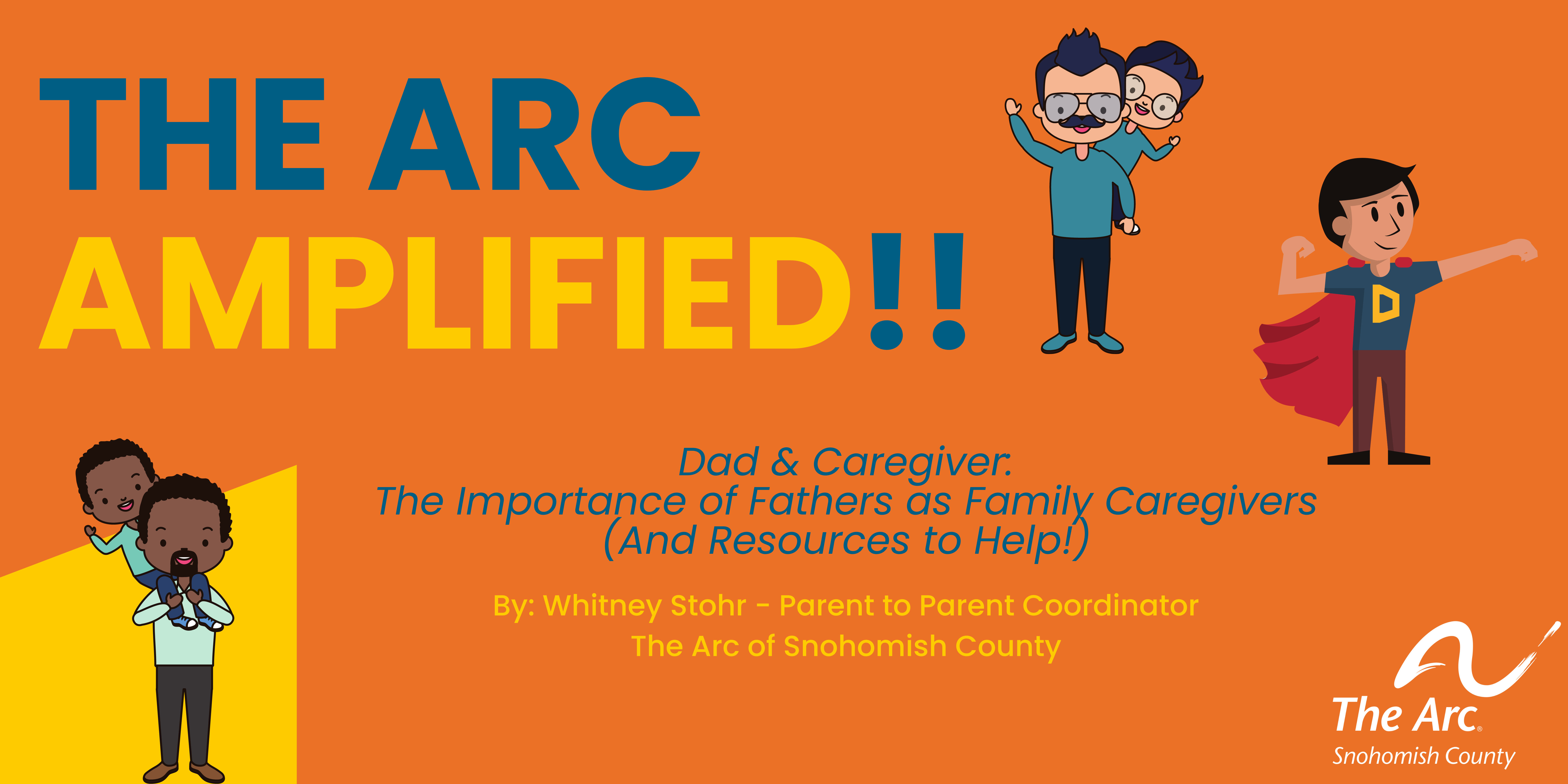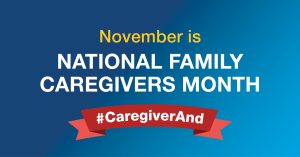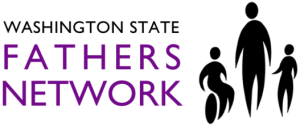
Dad & Caregiver: The Importance of Fathers as Family Caregivers
(And Resources to Help!)
This November, during National Family Caregivers Month, we recognize the many contributions of family caregivers in our communities, our state and across the nation.
 Family caregivers are part of the “informal caregiving” sector, comprised of millions of Americans who provide caregiving services for a family member or loved one, but are not paid or formerly employed in this role. Family caregivers are a diverse group. A family caregiver may be a spouse who cares for their partner when illness hits. They may be an adult child who assists their aging parents by shopping for groceries, driving them to medical appointments or assisting with household chores and upkeep. A family caregiver may be an adult sibling or other close family member who support a loved one with a disability, who, while living independently, requires assistance with specific tasks. In the context of “family” caregiving, the caregiver may not actually have a familial relationship with their loved one; they may, instead, be a neighbor or dear friend. And, certainly, family caregivers include the parents of children with disabilities.
Family caregivers are part of the “informal caregiving” sector, comprised of millions of Americans who provide caregiving services for a family member or loved one, but are not paid or formerly employed in this role. Family caregivers are a diverse group. A family caregiver may be a spouse who cares for their partner when illness hits. They may be an adult child who assists their aging parents by shopping for groceries, driving them to medical appointments or assisting with household chores and upkeep. A family caregiver may be an adult sibling or other close family member who support a loved one with a disability, who, while living independently, requires assistance with specific tasks. In the context of “family” caregiving, the caregiver may not actually have a familial relationship with their loved one; they may, instead, be a neighbor or dear friend. And, certainly, family caregivers include the parents of children with disabilities.
While caregiving can be incredibly rewarding, the stress of the responsibility also takes a toll on caregivers. Research finds that family caregivers are at increased risk of physical and mental health decline, likely associated with chronic stress, and often report feelings of depression and anxiety, overwhelm, and isolation. Finances and other close relationships may suffer as well.
In 2020, 53 million Americans provided unpaid care to an adult or child with medical needs or a disability. Parent-caregivers of children with developmental disabilities are included within this larger sector. While it is true that most primary caregivers are women, in recent years, fathers have taken on a larger share of caregiving responsibilities. This has led to more deliberate efforts to include fathers and other male caregivers in conversations about caregiving, parenting a child with a disability or chronic medical condition, self-care, support and connection, healthy relationships, and more.
The dominant image of a woman as the primary family caregiver can make it more difficult for men to connect with programs, services and support groups that include other male caregivers. It also reinforces gender norms (that are harmful to both men and women!), which can make it even harder for men to seek the help they need.
 The Washington State Fathers Network plays a central role in connecting male family caregivers with support groups, resources and information, and learning opportunities. The network, which has chapters in counties across the state, supports men in their caregiving role, as dads and partners, and as individuals. The Snohomish County chapter of the Fathers Network meets twice monthly, in the evenings, and is led by Jake Murray, Parent/Family Coalition Coordinator at The Arc of Snohomish County. Contact Jake Murray at fathersnetwork@arcsno.org.
The Washington State Fathers Network plays a central role in connecting male family caregivers with support groups, resources and information, and learning opportunities. The network, which has chapters in counties across the state, supports men in their caregiving role, as dads and partners, and as individuals. The Snohomish County chapter of the Fathers Network meets twice monthly, in the evenings, and is led by Jake Murray, Parent/Family Coalition Coordinator at The Arc of Snohomish County. Contact Jake Murray at fathersnetwork@arcsno.org.
Learn more at fathersnetwork.org.
*****************************************************
Programs and services supporting fathers and other male caregivers:
- Connecting Fathers Workgroup — Website: tinyurl.com/37w7jjzu
- Community Cafes — Website: tinyurl.com/3aa4cwbb
- Dads Appreciating Down Syndrome — Website: tinyurl.com/cumfu7v9
- Dads Connect — Website: tinyurl.com/2h3kkvb8
- Dads M.O.V.E. — Website: dadsmove.org
- Families of Color Seattle — Website: focseattle.org
- Puget Sound Dads Group — Facebook: facebook.com/PugetSoundDadsGroup/
- Washington State Fathers Network — Website: fathersnetwork.org
Additional resources & information for male caregivers:
- Annual Washington Fatherhood Summit — Interagency Fatherhood Council Washington — Link: tinyurl.com/62v5auwz
- Conscious Fathering — Parent Trust for Washington Children — Link: tinyurl.com/3dcz42y2
- Dads Who Have Children with Special Health Care Needs: Taking Care of Yourself — Washington State Fathers Network — Link: tinyurl.com/3k2tccrt
- “Man Enough to Care” Mini-Series — Caregiving Across Generations — Link: caringacross.org/manenough/
- Why We Need to Reevaluate These Harmful Caregiving Stereotypes — Caregiving Across Generations — Link: tinyurl.com/y4sedmp4
*****************************************************
Whitney Stohr is a Parent to Parent Coordinator at The Arc of Snohomish County. She is passionate about advocating for medically complex children and children with disabilities and their families. She is a mom and medical caregiver herself, who is energized by working closely with other parent/family caregivers. She lives with her three-year-old son Malachi and husband Jason in Lynnwood. Connect with her online at whitney@arcsno.org.

